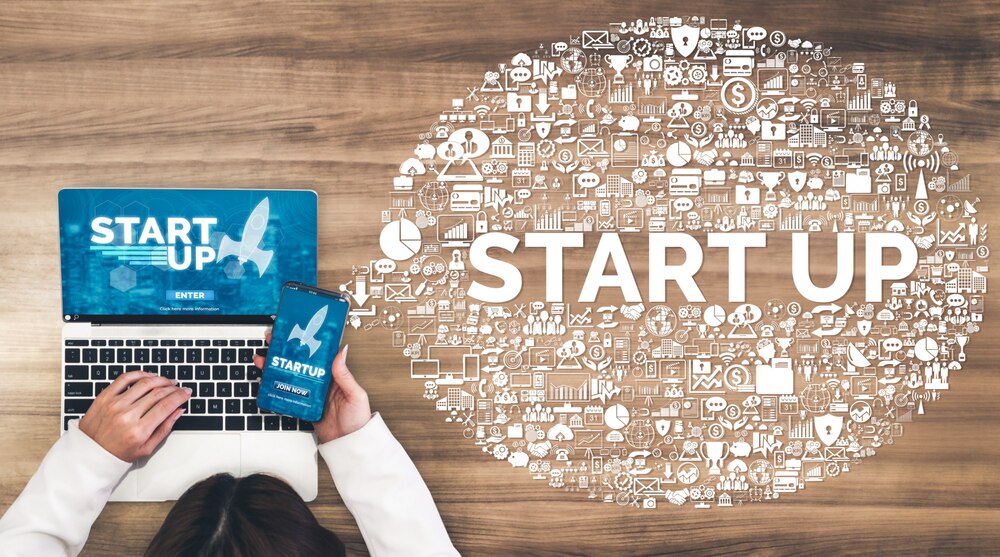What is a Startup Incubator? The way it can Support Founders to Succeed in 2025
Introduction
Even a brilliant idea is not going to be sufficient to start a startup because a certain amount of resources, a community, and the correct direction are also required. That is the reason startup incubators are praised by early-stage founders. But what is the startup incubator and why is it helpful in 2025 in particular? To simplify the details, we will go into pieces.
1. What Is Incubator Startup?
A startup incubator is an organized process that provides startup mentorship, office, capital, business and legal services and a service point. Length These programs usually take between six months and two years, and they involve the conversion of ideas yet to mature into viable and investable businesses.
When compared to accelerators coming in the form of fast-paced and demo-day oriented, incubators are less hectic (and thus an optimal choice to get the building blocks (e.g. product-market fit, team culture, and operation processes) set in place).
2. What role would Incubators play in 2025?
The startup ecosystem by 2025 is more complicated than it has ever been:
Remote-first teams have more access to talent on a global basis than they did before; however, they lose the hands-on asset mentorship that comes with being in-house.
The machine-learning tools allow us to make work on the product development faster but such tools need more specifically oriented advice.
Regulatory aspects (e.g. data privacy and fintech licensing) need support with the current law.
The hybrid working culture requires a community to mentor and work together.
Incubators close these gaps. They serve as home grounds for founders to learn, test, and relate, even in remote or high-tech settings.

3. Major Advantages of an Atlantic Incubator Enrolment
A. Mentorship & expertise advising
Incubators get together experienced entrepreneurs, domain experts, and investors. They offer:
Office hours every week
One-to-one coaching
Accessibility to introductions to experts in the field
Such tips cannot be underestimated in terms of refinement of business models, presentation to VCs or negotiating with vendors.
B. Community / Peer Support
Having founders experiencing the same problems creates:
Moral support
Open critique of the product and team decision
Connection with angel investors, developers, or partners are shared
This group of peers can usually live beyond the program.
C. Funding & Investors Access
A lot of incubators provide:
Seed funding (usually, $20k- $150k)
Investor demos: When demos are by invitation only, visibility is essential.
Introduction to VCs or angel syndicates
The startup-killing or startup-making early capital bridge of the capital-driven world of 2025.

D. Resources of Operation
Commonly, incubators offer:
Office or shared working place
Legal, accounting, and IP support
The back-office tools (CRM, cloud credits, access to software)
All these benefits are cost-saving, enabling the founders to focus on growth.
E. Authentication & legitimacy
To have the seal of credibility is to be accepted into a revered incubator:
Customers
Partners
Investors
It is an indication that your startup is promising and has likely undergone a vetting process.
4. Most populor startup incubators in 2025
These are incubators raising a splash in 2009:
Y Combinator Y-Combinator is also one of the best options if you are a tech or AI company.
Techstars- Globally Scaled with niche-based accelerators.
500 Global (formerly 500 Startups) boasts a high mentorship intensity and strong growth in Latin America.
Start X, located at Stanford, is geared toward deep-tech founders.
Indie Bio -Indie Bio is devoted to the field of biotechnology and health technologies.
More recent ones offer programs like virtual incubators, those run by corporations, hubs sponsored by cities, and even former workspaces affiliated with city-sponsored programs or corporations — all to provide founders with sector-channeled or remote-accessible opportunities.

5. The Way Startup Incubators Run Their Programs
Structures always follow the same pattern as incubators:
Application & Selection – Demo-video, pitch, dedication to founders.
Orientation: Aims, Alignment, and Overview of a Program.
Workshops & Events – It includes product development, pitching, hiring, marketing, and equity.
Master Office Hours – Show-ups with professionals and colleagues.
Investor Demo Days: Optional but potent for running rounds.
Alumni Networks – Access to founders, deal flow, and knowledge for life.
Distanced incubators overlay virtual hangouts, peer groups, and time zone mentors.
6. Founder ROI: What Entrepreneurs receive
Incubated startups are found to have:
Better survivorship-incubated startups have had improved chances of survival, with up to 100 percent success rates in the last two years.
Improved financing: the average seed rounds are closed 20-30 percent better financed.
The quicker bring-up of operations, legal, products, and all commercial processes matures in 6-12 months.
Larger-term growth- sources of late-stage VC, talent ecosystems, and co-marketing.
This kind of payback has the potential to make a significant difference to founders in the competitive startup environment of 2025.
7. Pre-Membership Factors
a. Fit and Focus
Seek incubators in agreement with your:
Industry vertical
Developmental stage
Geographic/logistics needs
Test The growth limitation brought about by being part of a fintech incubator in case you are developing a music app.

b. Funding and Equity Term
Typical models:
5-8% ownership in exchange for 20k to 150k of seed capital and services
In order cases, convertible notes or SAFE agreements
Equity terms should always be read in detail.
c. Time commitment
Even virtually-based programs may require:
10-20 hours/weekly
Volunteering in events and mentorship sessions and peer sharing
Ensure that you set the schedule to your abilities.
d. Post-Program Support
Alum success rates and continued access-that is ownership to:
Mentors
Investors
Services
Specific incubators die down when Demo Day comes to an end; end. Others have active alum networks.
8. Writing a good application How
The success begins here. To increase your odds:
Write a good elevator pitch.
Show traction early, any early traction; show beta users, show pilots, and show some revenue numbers.
Commitment of show founders-quit jobs or hours of concentration.
Demonstrate an even team with tech, business, and operational strengths.
Emphasize an exceptionality or competitive differentiation that provides a competing advantage or proprietary technology.
Even a couple of well-buffed slides and a demonstrative video may do the trick.

9. Alternative to Full-time incubation
In case the traditional programs do not meet your needs, you can take into consideration:
Improvements (500, Techstars) of 3-4 month growth sprints
On Deck (Online program, flexible entry)
As an example of industry (e.g. NYC FinTech Innovation Lab)
Incubators (e.g. MIT, UCLA, Rice) affiliated with university usually provide local support
Both have their advantages and disadvantages- pick them depending on the stage and intentions.
FAQs
- Do I have to travel to join an incubator?
Yes, in 2025, remote Mentorship, peer groups, and demo days were successfully provided in many virtual programs.
- Does equity exchange always have to take place?
The percentage of equity accepted by most top incubators ranges from 5% to 8%, whereas virtual hubs or scholarships can be non-equity-based.
-
What are the major distinctions between incubators and accelerators?
Incubators are open-ended, long and explorative. The short sessions of intense programs are referenced as accelerators, where the programs focus on startups that have proven MVPs and traction toward a demo day.
-
How many funds will I have?
In incubators, seed can be as little as $20,000 and as much as $150,000 with customary services and network access.
- What makes me understand that I have a product-market fit?
Product-market fit is determined by mentor reports, user feedback, funds inflow trends, and retention data, which are always the top of incubator advisors.
Q6. How to explore more about Startup Incubator ?
To get daily update on Startup Incubator please visit Moneymexa.com regularly.
Conclusion
In 2025, startup incubators remain effective launching platforms for founders who want to create viable, scalable, and investable businesses. They provide the sponsorship, network, capital, and platform scaffolding, whether virtually or otherwise, required to succeed in the rapidly changing rapidly changing online space.
When you’re going strong and need a solid structure in which to develop your next venture, a reputable incubator is the best support you can have. Please select the correct one, give it your best effort, and utilize the toolbox wisely. This may be the beginning of your future as a startup.
To keep in touch with us for Daily updates on Startup Incubator :
Also follow our social medias to be up to dated about Startup Incubator : https://facebook.com/money.mexa

